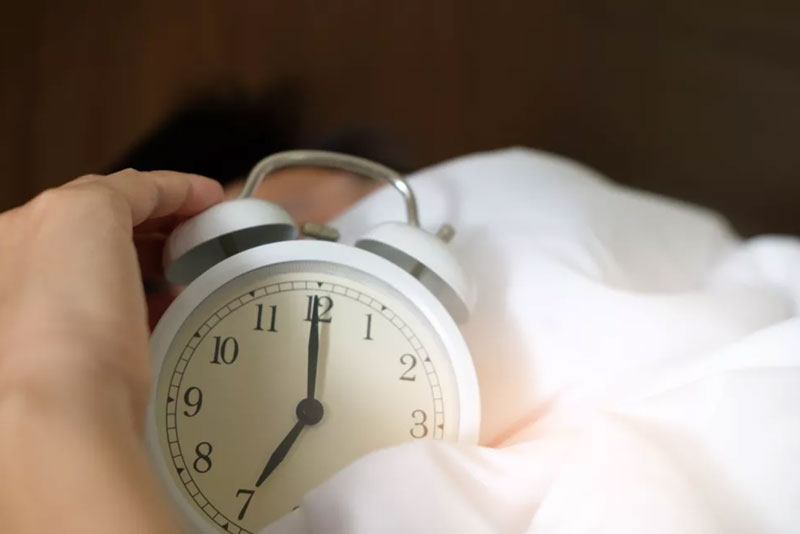That’s right, March 8th – 14th March marks National Sleep Awareness Week. It’s a great excuse for people to celebrate sleep health, and make the lifestyle changes they need to improve their sleep patterns.
Poor sleep is linked to a myriad of health issues: increased weight, heart disease, stroke, diabetes, depression and more. On the other hand, good sleep is linked to improved concentration and productivity, better immune function and improved social interactions.
Good sleep isn’t just about getting through the next day with a smile – it’s about developing a long-term sleep strategy designed to help you deal with life’s stresses.
What is sleep?
We all know sleep is important, but many of us don’t know why. Your body might seem to shut off when you sleep, but your brain doesn’t. Instead, sleep enables your body to rest and recover.
Sleep gives your brain an opportunity to remove toxins, repair tissue and regenerate cells. You produce infection-fighting proteins in your sleep, too, so your body is able to restore itself and maintain a good level of wellness.
How much sleep do we really need?
The average amount of sleep needed depends on age but, generally, between 7-9 hours is recommended. Getting too much or too little sleep can impact your day-to-day life.
Your body needs time to recover and rejuvenate, and you need to allocate a good chunk of your day to sleeping. But you can have too much of a good thing. Regularly oversleeping can actually have an adverse effect and you’ll end up feeling fatigued. In the same way your body needs time to relax, your body also needs to be active and awake for a good proportion of the day – spending your active time oversleeping can lead to a range of health issues.
Improve your bedtime routine
Make your bedroom a sleep sanctuary: dark, quiet and not too toasty warm! This will teach you to recognise that your bedroom = sleep, helping you to destress and fall asleep in your safe space much quicker. You should also invest in a good quality mattress and pillows to help you feel comfortable both while you’re trying to doze off, and while you’re asleep.
Take time to wind down and relax before bed each night. You might think one last episode of your favourite TV show won’t hurt, but it will disturb your relaxation. Instead, try reading (avoiding reading on your phone or tablet) or practicing mindfulness techniques before bed to put you in a state of relaxation before sleep. Try not to keep your mind too active. Doing puzzles, taking part in a lengthy debate or having a stressful conversation will make it hard for your mind to switch off.
Set a standard time to go to bed and wake up, and ensure this is consistent every day of the week. This will help support your biological clock and eventually your body will get used to this strict routine, enabling you to get the quality sleep you need.
Responding to changes in your sleep schedule
It takes time for people to reset their biological clock. This means it can take over a week to adjust to a new time zone or working night shifts.
Improve your sleep environment by trying to emulate night-time conditions. Aim for a quiet environment with black-out curtains so you aren’t disturbed by external factors.
Many people experience one-off changes to their sleep schedule, such as ad-hoc late nights during the week. While sleeping in during a weekend can help recover some of these lost hours, it shouldn’t be relied upon as a regular routine. You need consistently high-quality sleep every night to maintain good levels of rest. Don’t risk your sleep-wake cycle by relying on weekend lie-ins.
Get ready for sleep throughout the day
Improve the quality of your sleep by avoiding alcohol, caffeine or heavy meals before bed as this will disturb your sleep. Your body needs time to unwind, and any disruption to this will cause you to have low quality sleep (if you can get to sleep at all).
You should also aim to take part in at least 30 minutes of exercise each day – save vigorous exercise for during the day, and more relaxing exercise such as yoga for later in the evening. Where possible, expose yourself to sunlight throughout the day, too. It keeps your internal clock stay on track of its sleep-wake cycle.
If you’re a day-time nap addict, make sure your nap doesn’t affect your sleep at night. Keep naps short and try not to nap in the evenings.
Ditch the tech
The blue light emitted by your technology (including phone, tablet, computer or even TV screens) disrupts your sleep. It delays your body clock, meaning you want to naturally stay up later and sleep in for longer – an impossible task if you have an early alarm set for work!
The activity driven from your interaction with technology is stimulating rather than relaxing. Chatting to friends, browsing social media, playing games… they all keep your mind active which makes it much hard to wind down ready for sleep.
If you wake up during the night and can’t get back to sleep, try not to turn to technology or check your phone. It’ll cue your body that it’s wake-up time, which means it’ll be particularly difficult for you to get back to a relaxed deep sleep.
The importance of good sleep
We spend a third of our lives sleeping. Don’t waste this time by following bad sleeping habits.
Do you recognise a few sleepy employees around the office? How many of your team can’t wait for home time? Encourage a workplace culture of strong wellbeing to keep your employees refreshed, happy and healthy. We Are Wellbeing experts deliver a range of seminars, including sleep seminars, to help empower your employees to make key lifestyle changes. Get in touch to find out how we can help you.







